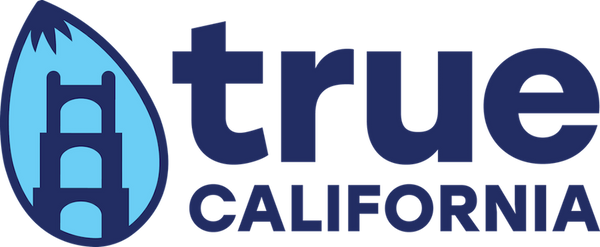By now, most of us consumers have heard about organic. (I'm sure there's a surprising number of people in the world who don't know about organic foods but that's a different topic for next time.) Choosing organic is supposed to be the "healthier" choice, but why and what does that all really mean? What else are organic foods and farming good for?
As it turns out, choosing organic is actually a pretty big decision. Organic foods and organic farming have positive impacts on our bodies and our environment. It all really comes down to prohibiting the use of synthetic pesticides, herbicides, and growth-hormones in organic farming.
The synthetic pesticides and herbicides used in conventional (non-organic) farming have been scientifically linked to numerous health issues and diseases. The list is long and includes lymphoma, leukemia, obesity, autoimmune deficiency, kidney disease, breast cancer, and some birth defects, to name a few. These chemicals are not so easy to wash off and tend to leave a residue. In the end, we end up consuming a bit each time and the amount builds up. These chemicals were created to kill insects and unwanted vegetation, basically life. Why would we ever want to eat that?
These chemicals can get deep beneath the surface. Our conventional crops absorb these chemicals and our conventional livestock ingest it. Once these pesticides and herbicides are used, it gets into the soil and foliage, and the crops that we consume absorb all the harmful chemicals when they pull water and nutrients from the soil. The same goes for our livestock. If we raise them on foods grown with chemicals and GMOs, they will retain some of the chemicals they ingest. And in the end, these chemicals will be passed onto us.
Pesticides and herbicides in the soil are another huge issue. They hurt our environment. They contaminate our drinking water because the surface water run-offs from conventional farms can end up in our lakes and reservoirs. Pesticides kill off natural pollinators like bees and herbicides leave the land barren, which causes soil erosion.
In addition, organic farming techniques are good for the environment. Cover crops, conservation tillage, crop rotation, and other sustainable farming techniques help keep the soil healthy and maintain biodiversity. They return critical nutrients, organic components, and much needed nitrogen to keep the soil quality high and healthy. Organic farming also leaves a much smaller carbon footprint than conventional farming by using far fewer fossil fuels.
There's much more harm in conventional farming than you would think. Conventional farming also allows the use of sewage sludge, treated waste that we've flushed down our toilets. Gross, right? Plus, studies have linked the use of antibiotics to treat livestock can cause a decrease of healthy probiotics in our digestive systems. The bigger question to ask is, "Why does the FDA and USDA allow for all these harmful chemicals and practices to be used with our foods?"
The price of organic foods is decreasing too. As more people become aware of organic foods' positive benefits, more people have been purchasing organic. Each time we buy organic, we are voting. It's our way of telling the farming community what we really want them to grow and how we prefer them to grow it. And as more farmers transition to organic, the prices will start to come down.
To be fair, organic farming is not perfect. It's still very important to read all the labels and know about the food you are eating. Some organic foods have unnecessary and harmful non-organic additives that have been linked to causing malignant tumors, vitamin E deficiencies, and shortened lifespans. But overall, it seems clear to us that choosing organic is much better than not choosing organic at all.
Eat well. Be Healthy!
Here are some articles on the benefits of Organic farming:
- https://foodrevolution.org/blog/why-choose-organic/
- https://www.soilassociation.org/organic-living/why-organic/
- https://www.thebalancesmb.com/reasons-to-buy-organic-food-2538039
- https://www.ccof.org/organic/why-organic
- https://www.ecowatch.com/10-reasons-consumers-buy-organic-1881899943.html
- https://www.organic-center.org/organic-fact-sheets/top-12-reasons-to-go-organic/

